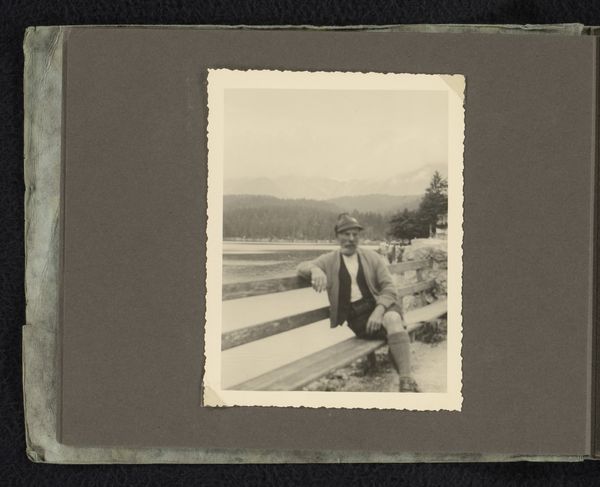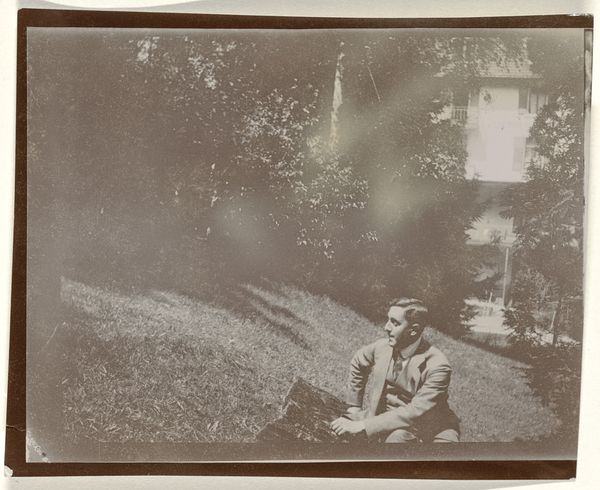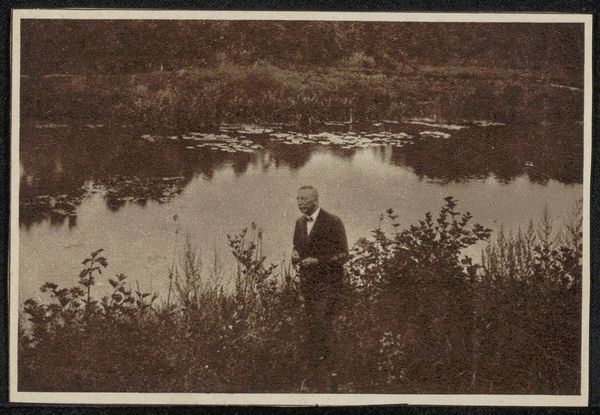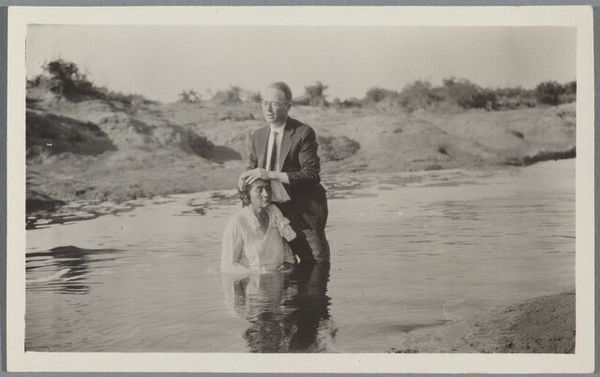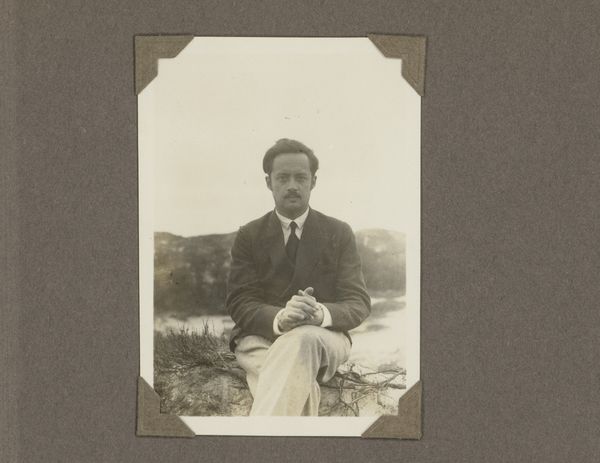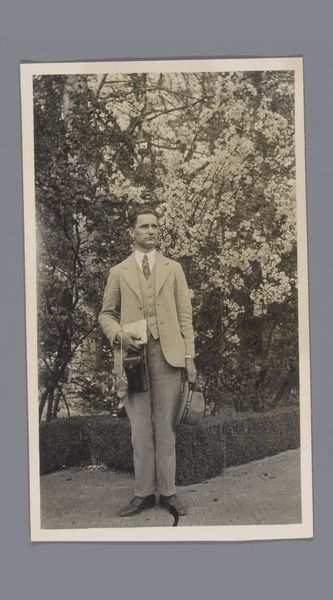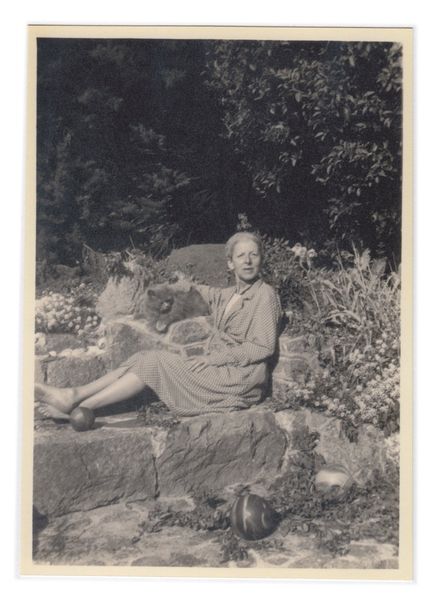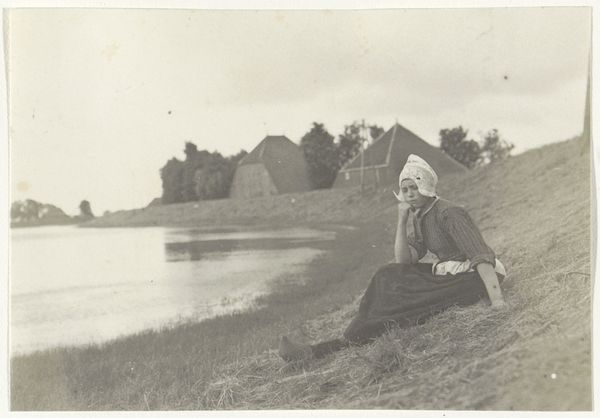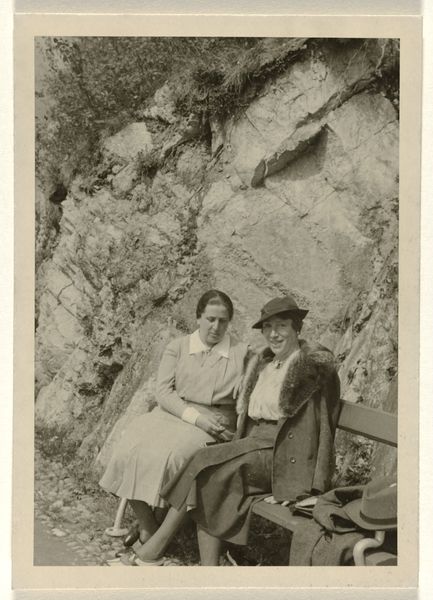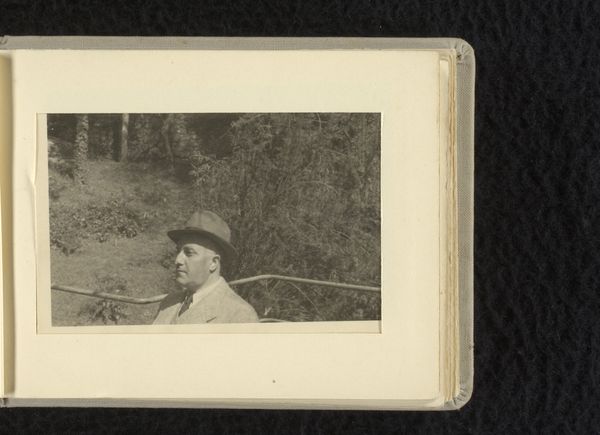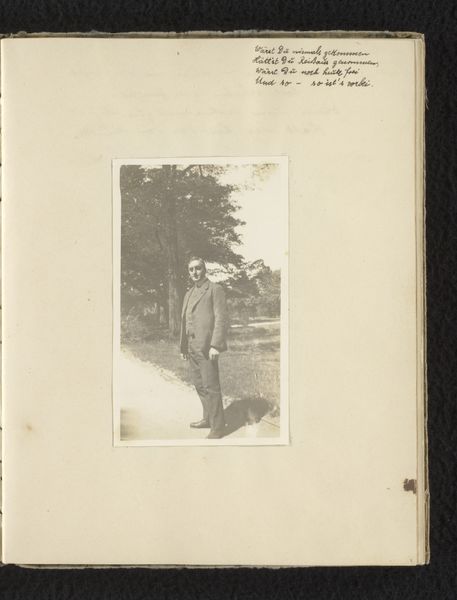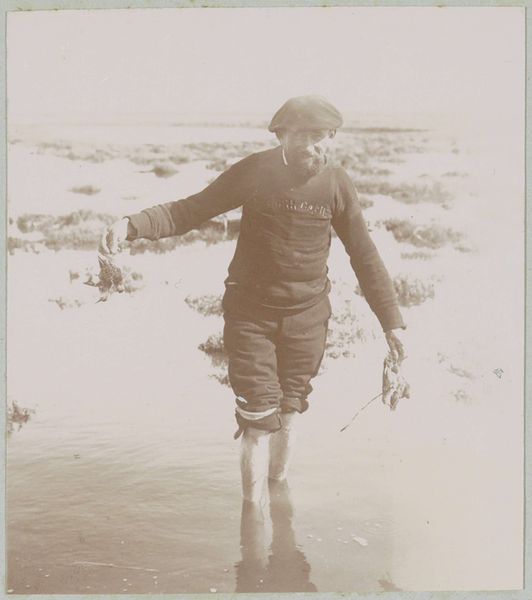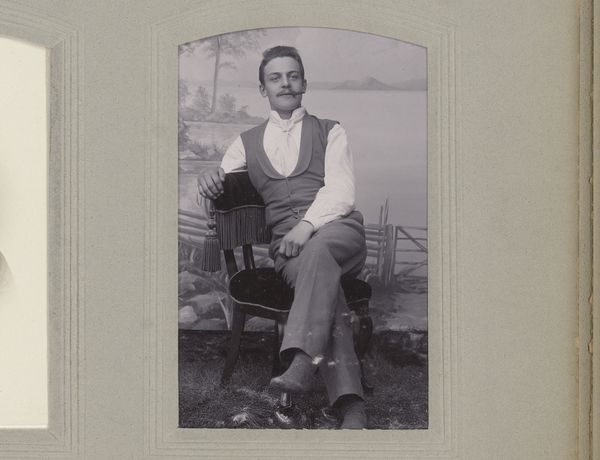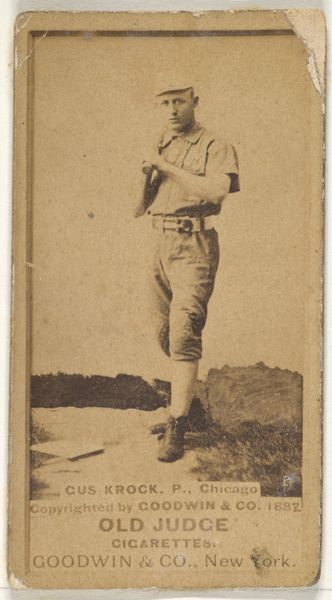
Portret van Benjamin Hernandez zittend op een steen in een rivier, het water reflecteert zijn spiegelbeeld 1922
0:00
0:00
photography
#
portrait
#
landscape
#
photography
#
realism
#
monochrome
Dimensions: height 135 mm, width 85 mm
Copyright: Rijks Museum: Open Domain
Editor: Here we have Arturo Montero's "Portrait of Benjamin Hernandez sitting on a stone in a river, the water reflects his mirror image" from 1922. It's a striking photograph, so sharp and detailed, even given its age. I'm immediately drawn to the mirroring effect of the water. What do you see in this piece, particularly regarding its historical context and artistic construction? Curator: For me, this image speaks volumes about the shifting role of photography at the time, particularly how portraiture became democratized due to the increasing accessibility of the medium, yet retaining ties to established painting practices. What was previously restricted to painted portraiture for the wealthy became somewhat available to middle-class sitters. Think about the sitter’s attire—the suit and hat. To what extent were these signifiers of status in tension with a seemingly more relaxed natural backdrop? Editor: That's an interesting tension, indeed. The manufactured elegance against the rawness of nature... Do you think Montero was consciously commenting on class and leisure with this portrait, or was it merely documenting his sitter? Curator: The "merely" is what interests me most. Considering the labour involved in producing photographs then versus now is important; what decisions regarding lighting, developing, and printing would have to be made? Every photographic action has the capacity to reveal cultural and social contexts. And considering this in relationship to consumption allows us to appreciate photography’s pervasive grip on our modern social lives. How has photography altered social interactions? Editor: I never considered the democratizing effect of photography in relation to painting or labour processes involved at the time. Curator: Exactly, seeing art this way brings in very useful historical awareness.
Comments
No comments
Be the first to comment and join the conversation on the ultimate creative platform.
